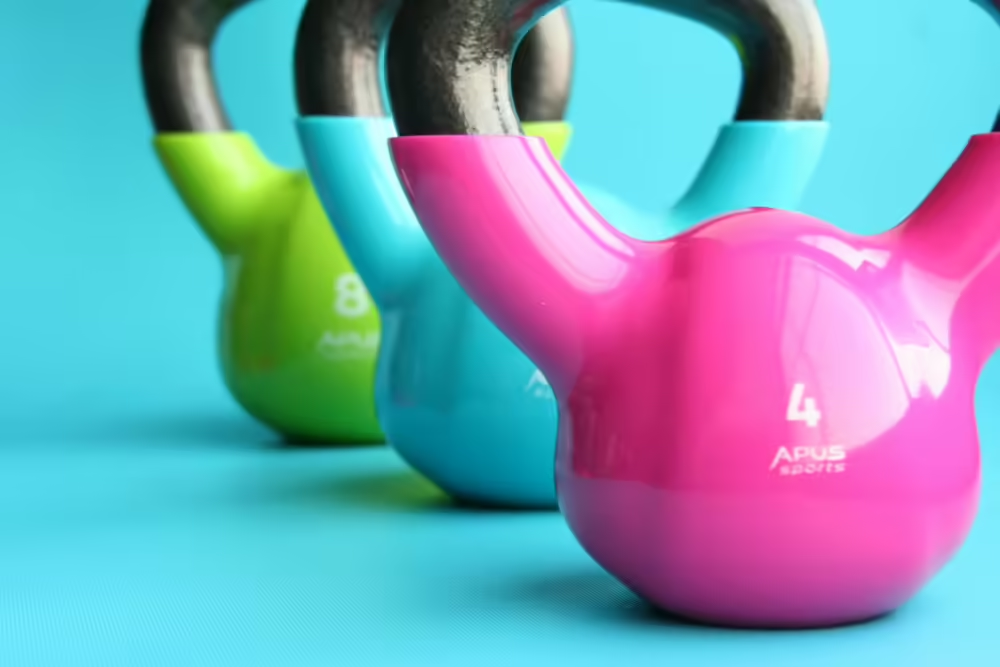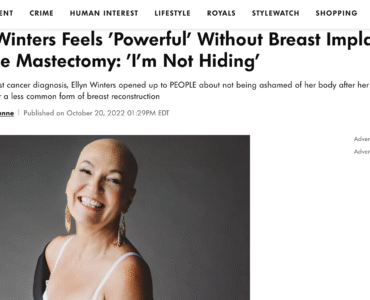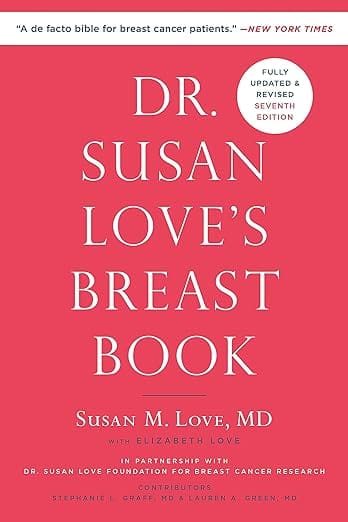One breast or two?
New research coming out of Toronto’s Women’s College Hospital Research and Innovation Institute, challenges the perceived benefits of a double mastectomy for patients with unilateral breast cancer. The research, published in JAMA Oncology, followed 108,084 breast cancer patients over 20 years. It found that while bilateral mastectomy significantly reduces the risk of contralateral breast cancer, it does not lower the risk of breast cancer mortality compared to unilateral mastectomy or lumpectomy.
According to the press release issued this week, the findings raise several fundamental questions about the nature of breast cancer with potential implications for the screening, treatment, and survivorship of the disease.
Key Findings:
- The study involved three equally matched groups of breast cancer patients (n = 36,028 each) who underwent either unilateral mastectomy, lumpectomy, or bilateral mastectomy.
- Bilateral mastectomy reduced the risk of contralateral breast cancer by 88 per cent but showed no significant impact on breast cancer mortality.
- The 20-year cumulative risk of contralateral breast cancer was 6.9 per cent for patients undergoing lumpectomy or unilateral mastectomy and only 0.7 per cent for those who had bilateral mastectomy.
- Breast cancer mortality after 20 years was nearly identical across all three groups: 16.3 per cent for lumpectomy, 16.7 per cent for unilateral mastectomy, and 16.7 percent for bilateral mastectomy.
This comprehensive study raises important questions about the metastatic potential of a new contralateral breast cancer and the true benefits of bilateral mastectomy for unilateral breast cancer patients. Despite the reduced incidence of contralateral cancer, the similar mortality rates suggest that bilateral mastectomy may not offer the survival benefit many patients and clinicians expect.
“Traditionally, it is assumed that a contralateral breast cancer is a new primary cancer with the potential to metastasize and thus impact overall survival negatively,” says Vasily Giannakeas, PhD, a researcher at the Women’s College Hospital Research and Innovation Institute and lead author of the paper. “However, the similar mortality rates across all surgical groups suggest that the occurrence of contralateral cancer may be more of a marker of an already existing higher risk of mortality rather than an independent cancer event that drives an increase in mortality.”
The study also raises important questions about the effectiveness of current screening strategies and adjuvant therapies, such as chemotherapy, in the treatment of contralateral breast cancer.
“About one-third of patients with contralateral breast cancer are treated with chemotherapy, “says Giannakeas. However, it now seems we are trying to treat the first cancer and chemotherapy may not be as effective. These are compelling questions that we hope to address in future studies.”
“For now, this research’s findings are valuable to the patient and their physician as they look to decide on surgical options to treat breast cancer.”
Okay, I have much to say on this one. Feeling rather spicy right now as evidenced by my last blog. Let me offer up a counterargument from the woman’s perspective — you know, that lady sitting on the other side of the surgeon’s desk? The one whose boob (boobs) you are about to amputate?
The research findings are encouraging if you look at a woman’s risk of cancer recurrence, development of metastatic breast cancer and mortality. However, we are women, not statistics. We are women who must live in our bodies after the breast or breasts are amputated and the treatments cease.
I had multi-focal cancer of the left breast. Three tumours developed over a two-year timeframe. The largest after surgery measured 4.5 cm. I had a “perfect” mammogram two years prior and had no family history connected to breast cancer.
When it was determined a mastectomy was my only option, my surgeon initially recommended removing only the left breast. I was familiar with the research reaffirmed by this latest study that the risks of developing breast cancer on the right side were small. However, I was insistent on having both breasts removed — but for other reasons. These were:
Lack of trust in my body
I developed my breast cancer over two years after having had a clean mammogram two years prior. While I understood the risks of recurrence were low according to the science, I simply didn’t trust my right side not to betray me in the same way my left side did. I hated my traitorous, treacherous breasts now. I couldn’t wait to have the cancer removed. I used to joke that if surgery didn’t happen soon, I was going to use a grapefruit spoon to dig it out (don’t do that, please).
Appearance and self-worth
I love fashion. I have a closet stuffed with clothes. I simply could not imagine spending the rest of my life harnessed to a prosthetic or looking lopsided. I had D-cup breasts. The removal of one would have been quite obvious, to me, to others. Now, I do know many women who have had a single breast removed and who are happy with their decision. I always say to each their own, and I respect everyone’s choice and decision. But for me, it was a no-fly zone. I will add that I recently spent a day with ten other women survivors, many of whom had a single breast removed. All but one of them expressed wishes that they had removed both breasts, citing the challenges of living with a single breast and several said they are looking to have surgery to have the other removed.
Doctors continue to point to long-held research and beliefs that psychological harms are less for women who undergo a partial mastectomy. This research out of Korea highlights that many of these studies were single-center studies involving a relatively small number of patients. The Korean national study, which looked at the case histories of 26,259 patients found the opposite to be true. In contrast to general belief, rates of overall psychological disorders and insomnia were lower in patients who underwent a total vs partial mastectomy.
Body Function and Biomechanics
I have a friend who is a kinesiologist. We talked about my decision to remove both breasts. She brought up something that I hadn’t thought of at the time but that made a great deal of sense. Living life with a single breast creates a functional imbalance and a torquing of the torso that can over time impact one’s biomechanics. It made complete and utter sense to me, and women I’ve spoken with have expressed similar complaints and concerns. That said, when I went looking for research to support this argument I found very little. There’s research that talks about the physical impacts of a mastectomy (lymphedema, range of motion etc) and research that talks about the use of a prosthesis, but nothing that speaks to the physiological impacts of going through life imbalance by a single breast. This is the only study that I was able to found.
I was fortunate to have a surgeon who listened to my arguments and attended to my wishes to have a double vs single mastectomy. To be honest, I’m not sure what I would have done had he refused. I certainly was concerned that might happen and had contemplated my course of action should that have been the case, including a full-out tantrum and going so far as to offer to pay out of pocket for the additional surgery.
I have spoken with far too many women who were not granted the same respect by their surgeons. Even though they pleaded to have both breasts removed, they had their requests for a double mastectomy denied.
Whether you choose to have both breasts or a single breast removed, it is your body and you should have a say in the matter.
What the medical community and researchers need to realize is that we are women and more than simply life and death statistics. The emotional implications of these surgical recommendations and decisions must be factored in and considered. This kind of research, while scientifically beneficial, can and is used by some doctors as an excuse for refusal.
Countless women will weigh in — if they are just asked on this matter — and will tell you that studies like this one can be deployed as a weapon against us and a barrier, rather than an aid, in shared decision-making.




